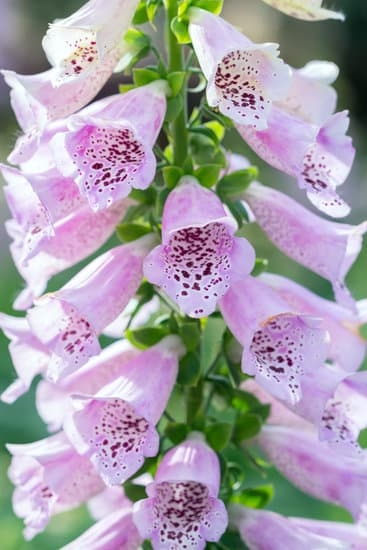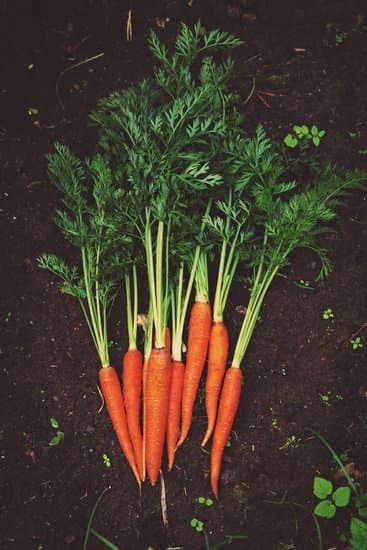Are you looking for creative and productive farm gardening ideas to make the most out of your land? Farm gardening offers a rewarding and sustainable way to grow your own food and connect with nature.
Whether you have acres of land or just a small urban space, there are plenty of options to create a bountiful farm garden. In this article, we will explore the benefits of farm gardening, essential tools and equipment, crop selection, soil preparation, pest management, harvesting techniques, and tips for small spaces.
Farm gardening is an age-old practice that has regained popularity in recent years due to its numerous benefits. Not only does it provide fresh and nutritious produce for your table, but it also promotes healthy living and reduces food expenses. By growing your own fruits, vegetables, herbs, and flowers, you can develop a deeper understanding and appreciation for the environment.
When embarking on a farm gardening journey, having the right tools and equipment is crucial for success. From simple hand tools to irrigation systems and compost bins, each piece plays a vital role in maintaining a thriving garden. Additionally, selecting the right crops based on your climate and soil conditions is essential from both an economical and sustainability perspective. Stay tuned as we delve into more detailed topics related to farm gardening in the following sections.
Benefits of Farm Gardening
As more people become interested in growing their own food, farm gardening has gained popularity for its numerous benefits. Farm gardening involves growing a variety of crops and vegetables on a larger scale than traditional home gardening. This section will explore the various benefits of farm gardening and how it can be a rewarding and sustainable practice.
Health Benefits
Farm gardening allows individuals to have access to fresh, organic produce, which is known to be more nutritious than store-bought alternatives. By consuming freshly harvested fruits and vegetables, individuals can ensure that they are getting the maximum nutritional value from their food. Additionally, farm gardening provides an opportunity for physical activity, as tending to a larger garden requires more physical labor.
Economic Benefits
One significant benefit of farm gardening is the potential for cost savings on grocery bills. Growing your own food means spending less money at the supermarket and having the ability to enjoy an abundance of fresh produce throughout the growing season. For those with surplus crops, there may also be opportunities to sell or trade produce with neighbors or at local farmers’ markets, providing a potential source of income.
Environmental Benefits
Farm gardening can also have positive effects on the environment. By growing your own food, you reduce your carbon footprint by cutting down on the transportation and packaging required to bring produce from farms to stores. Additionally, many farm gardeners use sustainable farming practices such as composting, mulching, and water conservation techniques, which help minimize their impact on the environment.
Overall, farm gardening offers a wide range of benefits that make it an attractive option for those looking to take control of their food supply and live a more sustainable lifestyle. Whether you have acres of land or just a small backyard, there are numerous farm gardening ideas that can help you grow your own food successfully while reaping all these benefits.
Essential Tools and Equipment for Farm Gardening
Farm gardening requires specific tools and equipment to ensure that your crops grow healthy and abundant. Having the right tools can make the task of gardening easier and more efficient. Here are some essential tools and equipment for farm gardening:
- Shovels: A good shovel is essential for digging, mixing soil, and planting crops.
- Rakes: Rakes are used for leveling soil, removing debris, and spreading mulch.
- Hoes: Hoes are useful for weeding, cultivating soil, and breaking up dirt clods.
- Garden Hose or Watering Cans: Proper watering is vital for the health of your plants. A garden hose or watering cans will help you ensure that your crops receive an adequate amount of water.
- Gloves: Protecting your hands while working in the garden is important. Invest in a good pair of gloves to prevent blisters and protect your skin from thorns and sharp objects.
In addition to these basic tools, there are also specific equipment that can be beneficial for farm gardening:
- Rototiller: A rototiller is a powerful tool used to break up soil, mix in amendments, and prepare large areas of land for planting.
- Wheelbarrow: Useful for transporting heavy loads of soil, compost, or harvested fruits and vegetables around the garden.
- Pruning Shears: Essential for trimming plants, removing dead or diseased branches, and shaping shrubs. Good quality pruning shears will make the task much easier and efficient.
Regardless of the size of your farm gardening space – whether it’s a small urban backyard or a large rural area – having these tools and equipment will help you effectively manage your farm garden.
With the right tools at your disposal, implementing farm gardening ideas becomes more manageable as these items will make your work easier. Whether you have a large-scale farm or a small urban garden, using appropriate tools saves time and effort while yielding better results.
Choosing the Right Crops for Your Farm Garden
When it comes to farm gardening, one of the most important decisions you’ll make is choosing the right crops to plant. The crops you choose will depend on a variety of factors, including your climate, soil type, and available space. Here are some farm gardening ideas for selecting the right crops for your farm garden:
Consider Your Climate
One of the first things to consider when choosing crops for your farm garden is your climate. Some crops thrive in hot, dry climates, while others prefer cooler, wetter conditions. Be sure to research which plants are best suited for your specific climate and growing conditions.
Think About Your Soil
The type of soil you have will also play a large role in determining which crops will grow best in your farm garden. Some plants require well-drained soil, while others prefer more moisture. Consider getting a soil test done to determine the pH and nutrient levels of your soil, which can help guide you in selecting the right crops.
Choose Crops You Enjoy
While it’s important to consider environmental factors when choosing crops for your farm garden, don’t forget about personal preferences. After all, one of the benefits of farm gardening is being able to grow your own fresh produce. Consider planting fruits and vegetables that you and your family enjoy eating.
By carefully considering these factors and doing some research on specific crop varieties that are well-suited for your area, you can ensure a successful and bountiful harvest from your farm garden. Remember that with proper planning and attention to detail, even small spaces or urban environments can yield productive agriculture yields.
Soil Preparation and Maintenance Tips
Testing and Amending Soil
Before you start planting in your farm garden, it’s crucial to test your soil to determine its pH level and nutrient content. You can do this by purchasing a DIY soil testing kit or sending a sample to a local agricultural extension office. Once you know the condition of your soil, you can amend it accordingly by adding organic matter such as compost, manure, or other soil amendments to improve its fertility and structure.
Proper Soil Maintenance
In order for your farm garden to thrive, it’s important to maintain the quality of your soil throughout the growing season. This can be done by regularly adding organic matter, mulching around plants to retain moisture and suppress weeds, and avoiding excessive tillage which can disrupt the natural ecosystem of the soil. Additionally, practicing no-till farming techniques can help minimize erosion and conserve moisture in the soil.
Cover Cropping and Crop Rotation
Cover cropping involves planting certain crops during off-seasons to protect and improve the soil. Legumes like clover or alfalfa can add nitrogen back into the soil, while grasses like rye or barley help prevent erosion. Furthermore, implementing crop rotation practices helps maintain healthy soil by preventing nutrient depletion and reducing pest and disease problems. By rotating different types of crops each season, you can effectively manage the overall health of your farm garden’s soil.
By paying attention to these essential tips for preparing and maintaining your farm garden’s soil, you’ll be on track for a successful harvest. As urban environments continue to evolve, incorporating farm gardening ideas into small spaces has become an attractive option for those wanting fresh produce right at their doorstep.
Whether you are gardening in large open spaces or in an urban environment with limited space, there are creative ways to get started with farm gardening ideas that will yield delicious results come harvest time.
Pest and Disease Management in Farm Gardening
Pests and diseases are a common challenge that farm gardeners face. However, there are several strategies that can be employed to effectively manage these issues and maintain a healthy crop. One of the most important aspects of pest and disease management is early detection. Regular monitoring of your farm garden is crucial in identifying any signs of infestation or disease development.
In addition to early detection, implementing preventive measures can help minimize the risk of pests and diseases in your farm garden. This can include proper spacing between plants, promoting biodiversity, and maintaining healthy soil through regular fertilization and composting. Utilizing natural predators, such as ladybugs for controlling aphids, can also be an effective method of pest management.
It is important for farm gardeners to familiarize themselves with common pests and diseases that affect their chosen crops. By understanding the specific threats to their plants, they can take proactive steps to prevent potential damage. Moreover, practicing good sanitation by removing any diseased plant material and regularly cleaning tools can help prevent the spread of pests and diseases within the farm garden.
| Pest/Disease Management Strategies | Benefits |
|---|---|
| Early detection | Minimizes potential crop damage |
| Implementing preventive measures | Promotes overall plant health |
| Familiarizing with common pests/diseases | Proactive prevention methods |
Crop Rotation and Companion Planting Techniques
Crop rotation is a fundamental practice in farm gardening that involves planting different crops in the same area in consecutive seasons to improve soil health, optimize nutrient usage, and reduce the prevalence of pests and diseases. By rotating crops, you can prevent the depletion of specific nutrients from the soil and minimize the build-up of crop-specific pests.
Companion planting is another beneficial technique in farm gardening that involves growing compatible plants alongside each other to enhance growth, productivity, and pest control. For example, planting marigolds alongside tomatoes can help deter nematodes, while growing basil near tomatoes may improve their flavor and repel certain pests.
When implementing crop rotation and companion planting techniques, it’s essential to do thorough research on which crops work well together and understand the specific needs of each plant. Additionally, keeping a detailed garden journal can help track what has been planted in each area of your garden over time to aid in effective crop rotation planning.
In small spaces or urban environments where traditional farm gardening may not be feasible, vertical farming, container gardening, and raised bed gardening are excellent options for maximizing space and yields. These alternative methods allow individuals with limited space to grow a variety of crops using innovative techniques such as hydroponics or aeroponics, opening up new possibilities for farm gardening in urban settings.
Harvesting and Preserving Your Farm Garden Produce
Once your crops have reached maturity, it’s time to harvest them. Different vegetables and fruits have different harvesting times, so it’s essential to educate yourself about the specific harvest times for each type of crop you are growing in your farm garden. It is important to remember that proper harvesting techniques can prolong the shelf life of your produce.
Properly storing and preserving your farm garden produce is essential to enjoy the fruits of your labor for an extended period. Some popular methods of preserving include canning, freezing, and dehydrating. Canning involves heating food in sealed jars to destroy microorganisms that cause spoilage. Freezing preserves food by lowering its temperature so that microorganisms cannot grow. Dehydrating involves removing moisture from food to prevent the growth of bacteria, yeast, and mold.
Preserving your farm garden produce allows you to enjoy fresh, homegrown fruits and vegetables all year round. Canning is a great way to prepare jams, pickles, or salsa, while freezing is perfect for items like berries or green beans. Dehydrating is ideal for making homemade dried fruit or herbs from your farm garden. Consider how much of each item will be produced this season before selecting a preservation method.
| Preservation Method | Examples |
|---|---|
| Canning | Jams, Pickles, Salsa |
| Freezing | Berries, Green Beans |
| Dehydrating | Dried Fruit, Herbs” |
Farm Gardening Ideas for Small Spaces and Urban Environments
In conclusion, farm gardening is a rewarding and sustainable practice that can be adapted to small spaces and urban environments. With the right knowledge and techniques, anyone can create a productive farm garden regardless of the available space. By making use of vertical gardening, container gardening, and utilizing small plots efficiently, individuals can grow their own produce even in limited areas.
Furthermore, embracing farm gardening in urban settings not only provides fresh and organic food for the gardener but also contributes to the overall greenery and sustainability of the city. It promotes a sense of community as neighbors come together to share their farm gardening ideas, tips, and surplus produce. Additionally, incorporating native plants and flowers into farm gardens can attract beneficial insects and pollinators, further supporting the local ecosystem.
Overall, farm gardening offers endless possibilities for creativity and innovation. As more people become interested in sustainable living and self-sufficiency, farm gardening continues to gain popularity. Whether you have acres of land or just a few square feet on your balcony or rooftop, there are plenty of ways to explore and experiment with different farm gardening ideas. With determination and dedication, anyone can enjoy the rich rewards of growing their own food through farm gardening.

Welcome to my gardening blog! I am passionate about plants and enjoy sharing my knowledge and experiences with others. In this blog, I will write about everything related to gardening, from tips on how to get started to updates on my own garden projects.





